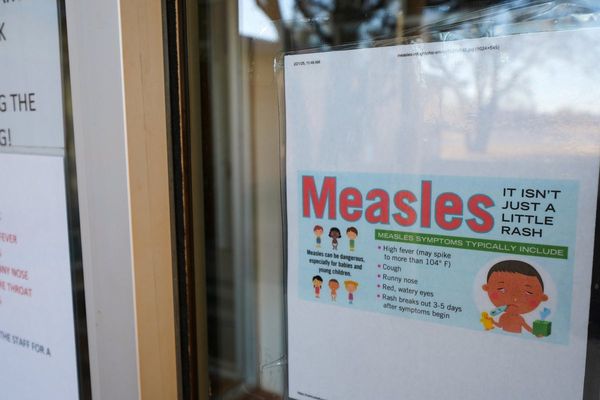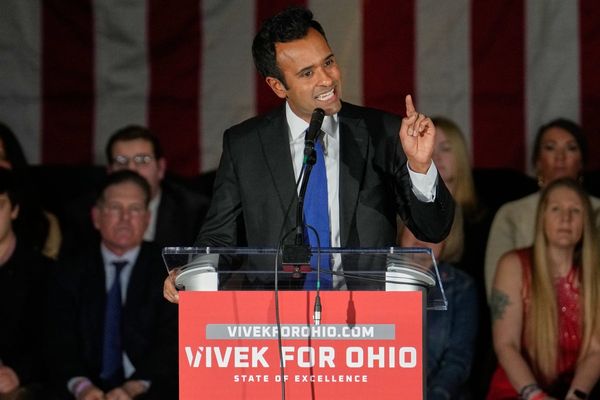A federal appeals court has dealt a stunning blow to President Donald Trump’s sweeping tariff agenda, upholding an earlier ruling, that found most of the president’s global levies were illegally imposed.
The unsigned opinion released on Friday by the full U.S. Court of Appeals for the Federal Circuit states that the decades-old International Emergency Economic Powers Act — the law Trump has repeatedly invoked when imposing sweeping import taxes on goods from most of the world — grants him “significant authority” to “undertake a number of actions in response to a declared national emergency.
But the appeals court, which specializes in cases dealing in specific and obscure areas of law such as international trade and patent law, does not grant “the power to impose tariffs, duties, or the like, or the power to tax.”
The anticipated decision from the appellate court largely upholds an earlier ruling from a three-judge panel on the New York-based federal Court of International Trade, which found in May that Trump had wrongfully invoked the emergency law to impose the tariffs.
The appellate judges delayed the implementation of their order until October to give the Trump administration time to review the case before the Supreme Court.
Friday’s decision once again throws Trump’s key economic agenda into uncertainty weeks after he had announced even more levies against more than 60 countries.
The president’s “Liberation Day” tariffs on April 2 established a 10 percent baseline tax on all imports and even higher taxes on imports from nearly every trading partner. Officials sought to broker deals with trading partners before the administration’s self-imposed August deadline, ultimately reaching a handful of deals with U.S. trading partners. Others now risk fees as high as 50 percent when goods hit American shores.
But the emergency law Trump invoked to justify those taxes “neither mentions tariffs (or any of its synonyms) nor has procedural safeguards that contain clear limits on the president’s power to impose tariffs,” the appellate judges noted.
“The government has not pointed to any statute or judicial decision that has construed the power to regulate as including the authority to impose tariffs without the statute also including a specific provision in the statute authorizing tariffs,” they said.
Justice Department attorneys had argued that Trump’s use of the law to impose import taxes was part of the president’s authority to conduct foreign policy and therefore not reviewable by courts.
But the judges were “unpersuaded” by such arguments.
“While the president of course has independent constitutional authority in these spheres, the power of the purse (including the power to tax) belongs to Congress,” the judges wrote.
They added that the emergency law “did not give the president wide-ranging authority to impose tariffs.”
White House spokesperson Kush Desai said in a statement that Trump had “lawfully exercised the tariff powers granted to him by Congress to defend our national and economic security from foreign threats.”
“We look forward to ultimate victory on this matter,” he added.
Trump also attacked the ruling on his Truth Social account, accusing the court of being “highly partisan” and claiming that the panel had “incorrectly said that our Tariffs should be removed.”
“If these Tariffs ever went away, it would be a total disaster for the Country,” he said. “It would make us financially weak, and we have to be strong ... if allowed to stand, this Decision would literally destroy the United States of America.”
Trump and administration officials have repeatedly raged at federal judges and the plaintiffs bringing cases against them after a series of court rulings defanged his agenda, and executive orders that tested the limits of his authority, including federal court rulings striking at the heart of signature economic policy.
The president predicted that the Supreme Court would allow his tariff agenda to stand and vowed to continue taxing Americans’ imports “to the benefit of our Nation, and Make America Rich, Strong, and Powerful Again!”
Trump has frequently and incorrectly claimed that tariffs are paid by foreign nations as an entry fee for access to the American economy, rather than import taxes typically paid by American importers and passed on to consumers, often in the form of higher prices.
Administration officials have argued that the nation is drawing in billions of dollars in exchange while boosting prospects for domestic manufacturing. But the high volatility of his trade policy — including repeatedly changing deadlines — has thrown global markets into chaos while Americans face higher prices at major retailers.
Why countries are suspending postal service to the US
What does Trump’s 50% tariff mean for India?
Trump’s trade war about to cost Americans 1.8% more in the short term, Yale analysis finds
Iowa’s Joni Ernst’s rumored decision to not run may create a problem for Republicans
Ukraine-Russia war live: Zelensky rejects Europe’s postwar ‘buffer zone’ plan
Denver school district pushes back but hasn't decided whether to change all-gender bathrooms







